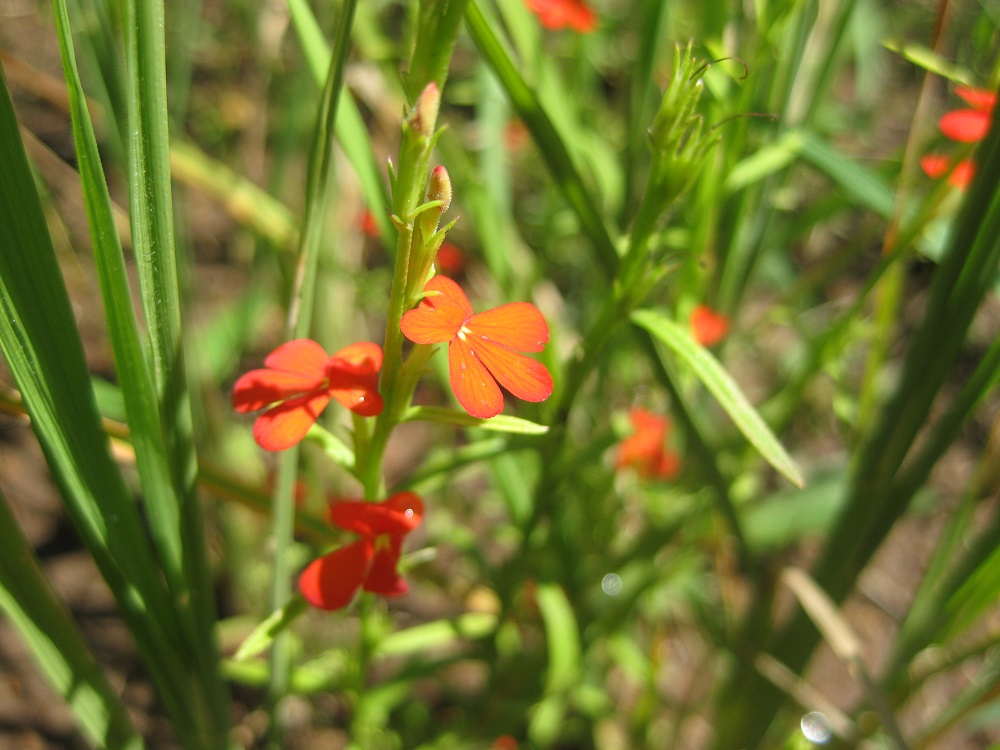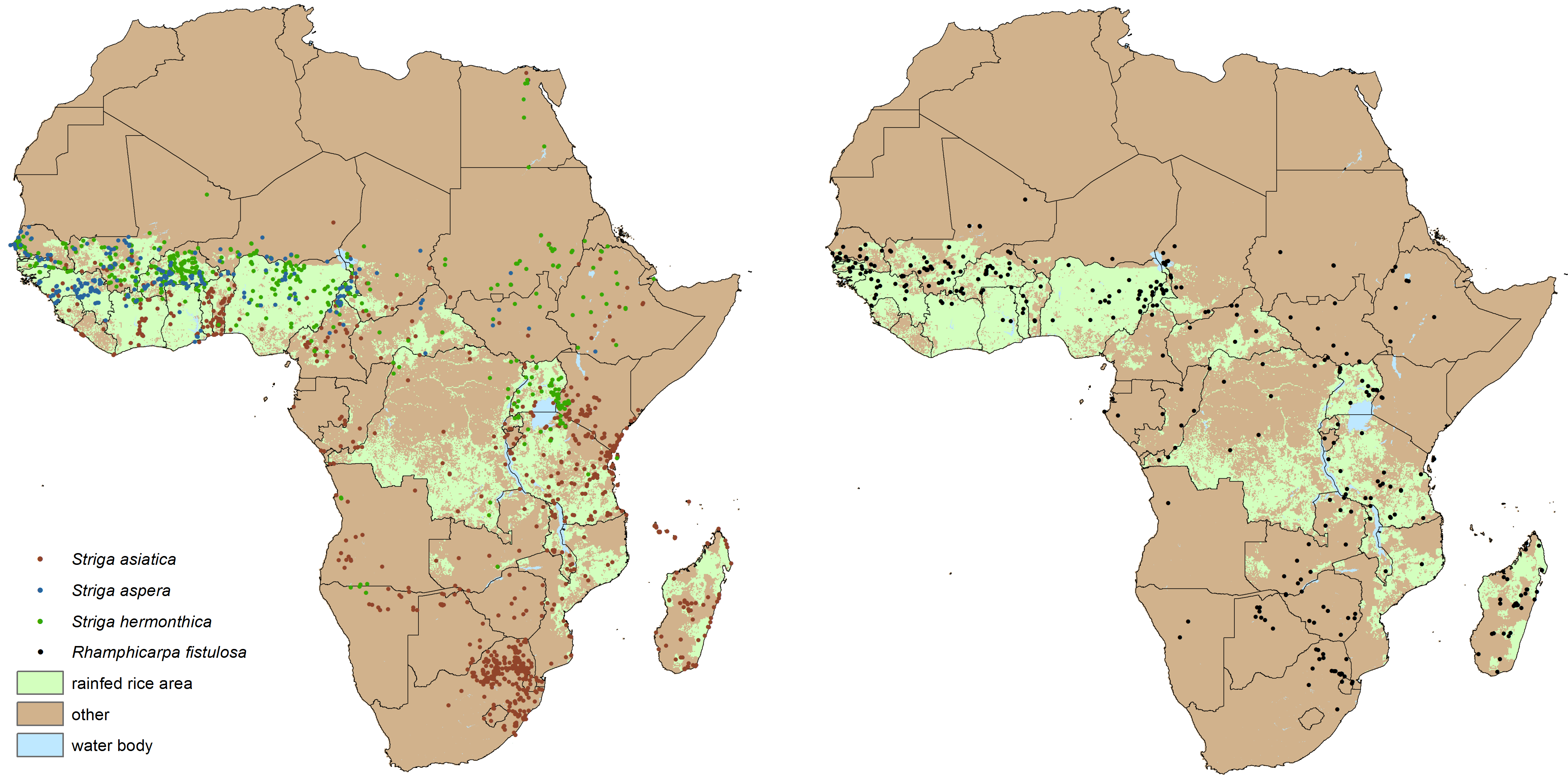Parasitic weeds invade around 1.34 million hectares of rainfed rice areas in Africa causing damages estimated at USD 200 million.
Parasitic plants infest other plants to extract water, nutrients, and metabolites, causing great damage to their hosts. When these plants invade food crops, they turn into ferocious weeds. We overlaid a map of rainfed rice production areas with parasitic weed observation data retrieved from public herbaria to visualize the regional distribution in Africa of the four most important species: Striga hermonthica, S. asiatica, S. aspera, and Rhamphicarpa fistulosa.
Striga species occur in at least 31 countries, whereas R. fistulosa threatens rice production in at least 28 countries with rainfed rice systems. Together, they invade an estimated 1.34 million hectares of rainfed rice area in Africa. The total economic loss inflicted by parasitic weeds in rice in Africa is estimated at USD 200 million, with an annual increase of USD 30 million.
Targeted investments in research, development, and capacity building are needed to reverse this trend. The countries where such investments would yield the highest payoff are Nigeria, Guinea, Mali, Côte d’Ivoire, Cameroon, Tanzania, Madagascar, Uganda, Sierra Leone, and Burkina Faso.
This article is an excerpt from Parasitic Weed Incidence and Related Economic Losses in Rice in Africa published in Agriculture, Ecosystems, and Environment.
_____________________
Dr. Rodenburg is an agronomist in the Sustainable Productivity Enhancement Program at Africa Rice Center (AfricaRice) in Côte d’Ivoire. Dr. Demont is an agricultural economist in the Social Sciences Division at the International Rice Research Institute in the Philippines, Dr. Zwart is a remote sensing and GIS specialist in the Sustainable Productivity Enhancement Program at AfricaRice in Benin, and Dr. Bastiaans is an associate professor at the Centre for Crop Systems Analysis at Wageningen University in The Netherlands.









